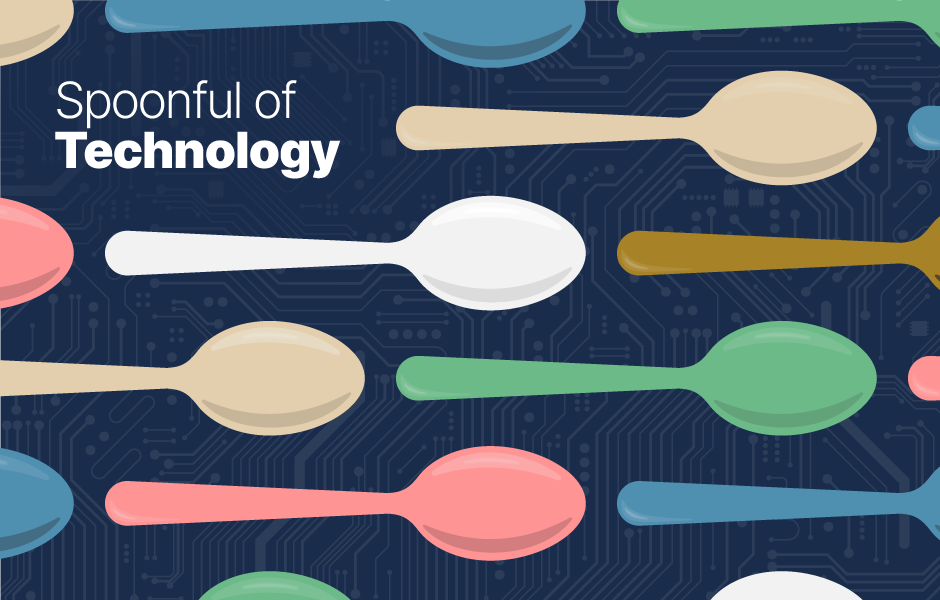Welcome to a new edition of Spoonful of Technology, where we dive into the latest pharma and healthcare innovations, exploring how they’re solving key challenges in the industry
Words by Isabel O’Brien
Market access
Challenge: Overcoming logistical hurdles in vaccine distribution
The COVID-19 pandemic highlighted significant vulnerabilities in global vaccine distribution. Traditional methods face challenges such as the need for refrigeration and trained administrators, hindering rapid and equitable access, especially in low-resource settings.
Solution:
In January 2025, Micron Biomedical, an Atlanta-based life sciences company, made headlines with its pioneering needle-free vaccine technology that could transform pandemic response. The Coalition for Epidemic Preparedness Innovations (CEPI) announced it would award the company $3.7m to further develop its dissolvable microarray technology. This approach uses a thermostable, dissolvable microarray button that painlessly delivers vaccines into the upper layers of the skin.
The technology offers several key advantages, including that it simplifies administration, as the patch can be self-applied, potentially enabling vaccines to be mailed directly to homes. Additionally, the thermostable formulation eliminates the need for refrigeration, streamlining distribution. This painless application could also increase patient uptake of vaccines and reduce the need for trained medical personnel.
Steven Damon, CEO, Micron Biomedical, emphasised the need for innovation in this area: “Novel viral threats unfortunately have an advantage over susceptible populations today, in part because conventional vaccines take too long to develop, are too hard to distribute and require too many resources to administer.”
Next steps:
The CEPI grant will enable a collaboration with CastleVax to combine Micron’s technology with a rapid response vaccine platform based on the Newcastle disease virus. The research will initially target COVID-19, comparing the performance of Micron’s technology with standard injections and nasal inhalation.
Dr Raafat Fahim, Acting Executive Director of Vaccine Manufacturing and Supply Chain, CEPI, highlighted the technology’s potential: “Micron Biomedical’s button-like technology is a very promising innovation in vaccine delivery and could pave the way for quick, easy, and equitable vaccination when responding to future infectious disease outbreaks.”
If successful, this collaboration could usher in a new era of rapid-response, needle-free vaccination, revolutionising the fight against future pandemics.
R&D
Challenge: Harnessing the power of NHS data for pharmaceutical research
The UK’s NHS holds a wealth of patient data that could significantly accelerate pharmaceutical research and development. However, complex regulations, fragmented technology systems and concerns around privacy have hindered access to this valuable resource.
Solution:
In February 2025, the ABPI called for a more streamlined and collaborative approach to data access. The organisation urged the NHS to standardise data formats to improve interoperability between different systems and establish a clear and efficient approval process to reduce the time it takes for researchers to access data. Additionally, the implementation of robust data governance frameworks was cited as critical to ensuring patient privacy and data security.
In a press release, Janet Valentine, Executive Director of Innovation and Research Policy, ABPI, underscored the importance of a strong health data infrastructure in the UK, stating that “to achieve the government’s ambition for growth and for the UK to become a world leader in AI, it is essential that we design a health data infrastructure that will enable small and large companies across the life science sector to flourish”.
Improved access to data could lead to faster drug development, more targeted therapies and better clinical trials. It would also allow industry and healthcare in the UK to work together more seamlessly, in line with the government’s aims.
Next steps:
While the potential benefits are clear, critics emphasise the need for strict safeguards to protect patient privacy. Ensuring transparency, obtaining informed consent and implementing robust data anonymisation techniques are crucial to maintaining public trust.
Nevertheless, the ABPI is engaging in ongoing dialogue with the NHS, government and patient groups to develop a comprehensive plan for improving data access while upholding ethical principles. The goal is to create a framework that balances the need for innovation with the protection of patient rights.
By addressing these challenges, the UK can unlock the full potential of its healthcare data and position itself as a global hub for pharmaceutical research and development.
Marketing and medical affairs
Challenge: Keeping healthcare professionals up to date with advancing medical knowledge
In the rapidly advancing field of medicine, healthcare professionals face the ongoing challenge of staying current with the latest developments in their specialties. Traditional continuing medical education methods often struggle to engage busy clinicians and translate theoretical knowledge into practical skills.
Solution:
As of March 2025, interactive case studies are gaining traction as a powerful tool for professional development in medicine. These short, engaging learning modules simulate real-world clinical scenarios, allowing HCPs to practise decision-making in a risk-free environment.
Interactive case studies, such as this example exploring atypical Lemierre’s syndrome, offer a dynamic learning experience. By connecting the dots through clinical questions and expert explanations, these modules sharpen diagnostic acumen and clinical reasoning skills, particularly in challenging cases that demand a high degree of vigilance and differential diagnosis.
Next steps:
Healthcare organisations implementing interactive case studies have reported increased user engagement. In this vein, EMJ found that interactive versions of content increased the number of engaged sessions by 180% compared to static versions.
“As a doctor, everyone knows that circumstances dictate our time and we are under pressure from multiple directions,” says Prof Johnathan Sackier, Chairman of EMJ and former surgeon, highlighting the value of interactive tools. “It is refreshing to see innovation come to the delivery of medical education. We have had to endure boring text formats forever, and now… I feel like we can participate in the digital revolution.”
As a leader in interactive medical education, EMJ offers a range of educational resources, including interactive case studies that cater to various specialties and learning needs. Find out more here.









